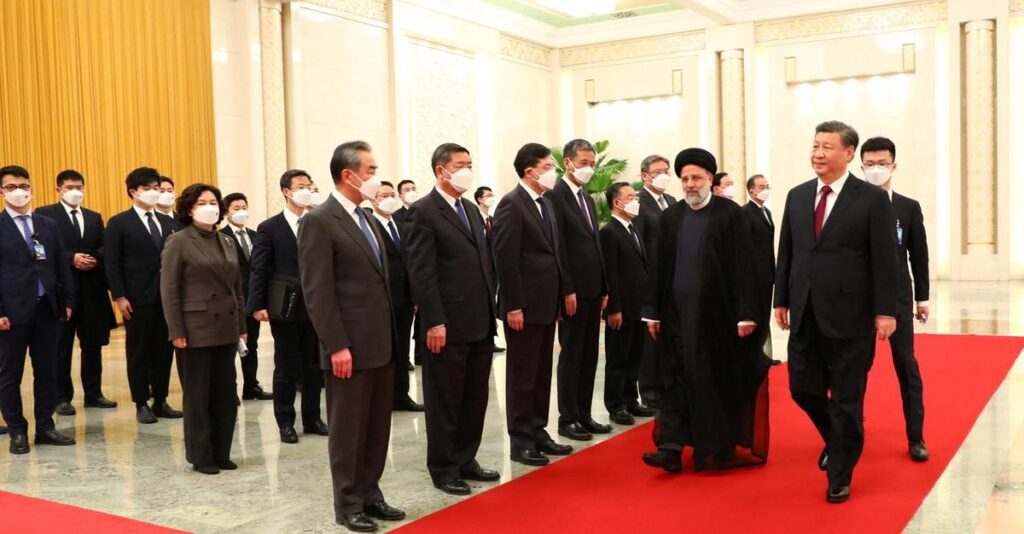The US believes China has a role to play in telling Iran to end its “destabilizing activities,” the State Department said as Iran’s president visited Beijing.
The department spokesperson Ned Price was asked on Tuesday to comment on Chinese President XI Jinping’s remark earlier in the day that the Iranian nuclear issue should be resolved as soon as possible.
In response he said that the United States has engaged with China and other global stakeholders to encourage them to counter Iran’s policies “that destabilize the region and threaten our partners and our allies. Iran’s nuclear program, its ballistic missile program, its other malign activities and influence, are profoundly destabilizing in the region.”
Ned Price drew attention to Chinese cooperation in pressuring Iran in the early 2010s regarding its nuclear program. Presumably, he said, that’s why “the PRC came together with us the better part of a decade ago by now in the original configuration of the P5+1 to work with us to ultimately negotiate what became known as the Joint Comprehensive Plan of Action [JCPOA].”
However, China has been violating US oil export sanctions imposed on Iran on a large scale since the Biden administration came into office. Industry observers believe that Beijing is allowing at least 700,000 barrels of Iranian crude oil to be imported by its refineries, which provides a financial lifeline to the regime in Tehran.
But Price also reiterated the administration’s new policy of not pursuing the nuclear talks unless Tehran meets a number of demands. The spokesman said, “the JCPOA has not been on the agenda for some time. We continue to discount, if not dismiss repeated claims from Iranian officials that we are eager to go back to the JCPOA, we’re calling for a return to JCPOA negotiations. We’re not. We’re sending very clear messages to the Iranian regime. Those messages are: Stop killing your own people, stop sending UAV technology to Russia, and free those wrongfully detained American citizens.”
Critics have repeatedly accused the administration of not sufficiently enforcing sanctions the US imposed in 2018, when former President Donald Trump withdrew from the JCPOA. The main loophole is the oil exports to China that can generate more than $20 billion a year for the Islamic Republic.
Price continued the administration’s rhetoric demanding that Beijing should act responsibly. “My point is that the PRC has a role to play in very clearly signaling to Iran that its destabilizing activities, that its brinksmanship is not going to be rewarded. It’s not going to be countenanced. It is not something that the international community is prepared to sit idly by and watch.”
Not only China supports the Islamic Republic by buying its illicit oil shipments, but inviting Raisi at a time when the regime stands accused of gross human rights violations against protesters, is a clear attempt to support the rulers in Tehran.
The Islamic Republic is facing isolation also because of its drone deliveries to Russia and Beijing’s invitation to Raisi partially mollifies that isolation.
Judging from numerous social media posts by Iranian critics of the regime, it appears that their anti-China sentiment has increased because of this latest lifeline thrown to the Islamic Republic.
Source : Iran International


